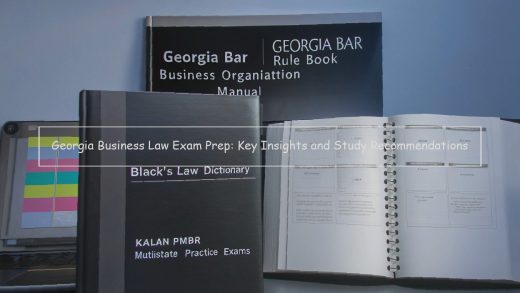
What is a Mediation Agreement?
While most mediation matters will generate some type of written agreement which tests the meeting of the parties to resolve issues in dispute, the form and character of that agreement may often be in question. A mediation agreement will assume a variety of forms ranging from a simple typewritten one-page document prepared by the mediator outlining the terms of settlement, to a more comprehensive, lengthy and somewhat formal document embodying a consent order or other settlement papers prepared and agreed upon by the parties and their counsel .
The purpose of a mediation agreement is to reduce to writing the particulars or generalities of an agreement to settle all or any of the issues in dispute between the parties. Agreements often relate to child custody, parenting time, child support, alimony, equitable distribution of assets, and other items of dispute in matrimonial actions. A mediation agreement can also relate to business disputes and may encompass a variety of commercial, corporate and other business matters and needs.
Elements of a Mediation Agreement
A mediation agreement often covers many important elements that are needed to form a legally binding contract among the parties, including the following:
Parties
The agreement should clearly identify the parties to avoid any confusion about who is bound by the terms of the document. This can be particularly helpful in family mediation cases involving multiple family members, particularly in divorce cases.
Confidentiality
A confidentiality clause ensures that the mediators or anyone else who attended the mediation session will not disclose any information that they learned during the process. This helps prevent any party from being prejudiced in the event of a future trial or court hearing.
Terms of Resolution
A mediation agreement should include as much detail as possible about the terms of resolution. This can include the following items:
Medinator Role
The mediator may be called upon to perform certain tasks after the mediation process to ensure that the implemented terms of the mediation are properly carried out. The roles of the mediators should be clearly defined in the agreement to avoid any misunderstandings later on.
Signature Line
The agreement should be signed by all parties to ensure both legally and morally binding behavior on the part of everyone involved.
Mediation Agreement Instructions
A mediation agreement is entered into to settle a dispute or litigation. The agreement, like any other contract, should outline the terms of the resolution of the dispute between the parties. In drafting the mediation agreement, the parties should take the following steps:
- The parties will need to agree in writing on the resolution of the dispute.
- The parties should consult with their attorneys about the terms of the proposed mediation agreement, including any concerns, expectations or requirements for the agreement.
- Attention should be paid to all terms and conditions being imposed by the mediation agreement to ensure that the agreement encompasses all issues being settled. The mediation agreement should also include language that the parties are knowingly entering into the agreement voluntarily and have had the opportunity to review the terms with their attorney.
- The mediation agreement should be signed by the parties as well as their counsel to show that all parties involved in the mediation agree with the substance of the agreement.
- Parties should ensure that the agreement is governed by the law of the appropriate jurisdiction. The law should provide for both mediation and arbitration if both processes are being contemplated in the agreement. If an arbitration regime will be imposed in the future (however unlikely), the parties should have opportunity to negotiate the arbitration provisions in the future.
- The enforcement of the mediation agreement should be addressed. This may include limitations on modification/successor/delegation clauses.
- The terms of the mediation agreement should be kept confidential by the parties. The agreement may also require the parties to keep confidential any documents furnished during discovery or at the mediation.
- The parties should make sure that a copy of the mediation agreement is filed with the court, if one is involved, as evidence of the parties intent to settle their dispute outside of litigation.
Mediation Agreement Mistakes
Mediated agreements, almost by their nature, must be clear, precise and avoid ambiguity in order to be effective. Here are a list of typical, common mistakes or errors often made by parties creating the agreement and some tips on how to avoid them: Overly long or too brief. Don’t relive every story or possible story that led up to the mediation. Use straightforward and quick sentences; it’ll be read again, you know. But if you make it too big, it may never get read. Confusing, or purposely vague language. Lobby this one hard, as there may be parts of the proposal you don’t want to do today, but want to leave for later (we’ll leave that to the lawyers, though!). Poor formatting. Make it look good, and it will get the benefit of the doubt. We have all read memos that are really good but look like garbage, and all we can do is cringe. On the other hand, don’t jazz it up so much as to make it a sales brochure, just format it properly. Missing key provisions. Need a nondisclosure clause, addresses ownership of future IP created during the course of the project’s execution? Those are essential pieces of the puzzle, so don’t miss them. Not addressing or predicting new business functions. It’s better to identify these now so everyone knows the risks, and how to choose to address them. Missing signatures. The more chiefs the document goes to, the more delays. General counsel level should be the limit. Not identifying specialized provisions. Even older mediation agreements may have sections that state that it is binding, even if the drafters meant it to be non-binding except for xx reasons, or that the mediator will follow up three months after the signed agreement about some provision. Request or intentionally add clarifying language. Allowing a binding or mandatory resolution. Of course of a neutral or arbitrator option is required, then that is negotiable. But when it’s not part of the deal, don’t allow for an arb. Changing the format to work with the lawyers’ office. Most legal teams have a template of their own that is ubiquitous among all of the company’s projects, no matter how different. That’s likely going to be a legal standard for many pieces of documentation, which is fine. But don’t let the lawyers dictate the whole document.
Sample Template for a Mediation Agreement
Introduction: As part of the mediation process, at the end of the mediation a mediator will often write up the Parties’ agreement in a succinct and clear written document summarizing all terms agreed by the Parties. This brief is to help you understand what a mediation agreement is usually composed of from a typical mediation case. These are some of the headings and clauses which may be used in your mediation agreement:
Heading: THIS AGREEMENT made the [Date] at [location of mediation], among and between:
- NAME (aka "Party 1") and
- NAME (aka "Party 2")
- NAME (aka "Party 3") (if more than two parties involved)
- 1The parties agree to attempt to resolve their differences regarding [subject of mediation], which is caused by (keep it simple and brief)
- NOW, THEREFORE, in consideration of the mutual covenants and conditions contained herein, it is agreed as follows:
- Fees: (how much do the parties owe?)
- Date(s): The parties agree that payments are to be made to [mediation company name, individual name, etc.] on the following schedule: (dates and amounts missed payments if any)
- TITLE TO PROPERTY IS DIVIDED: [EXAMPLE] 7.1 (Who gets what? List them here. Be as detailed as possible)
- ADDITIONAL TERMS: [any other issues negotiated. ex. if you have kids, visitation for the children, etc.]
- PENALTIES: (have penalties for missed payments or breach. Keep them in line)
- INFLATION: (ex. rental props . If economy gets better, landlord is able to raise rent by 1% to account for inflation every year)
- TIME IS OF THE ESSENCE: (an agreement with a party to provide timely performance).
- MEDIATOR’S STATUS – The Mediator shall not be a necessary or proper party to any judicial or arbitral proceeding relating hereto.
- VERBAL REASSURANCES: [REASSURANCE TO THE PARTIES THAT EVERYTHING SAID WILL REMAIN CONFIDENTIAL](THE HEAVY STUFF)
- CONFIDENTIALITY – The deliberations that take place during the mediation and as a result of this agreement are confidential. They cannot be disclosed in any manner to the public or media without the prior consent of all parties to the controversy and the Mediator. Nothing said during the mediation can be disclosed in any legal proceeding. The parties may disclose information to others, but only if those persons agree to be bound by the same confidentiality restrictions as are placed upon the parties by this paragraph. Information may be disclosed as needed to counsel in order to attain counsel’s advice. Counsel for the parties may not disclose any information to others except in accordance with the same restrictions placed on the parties by this paragraph. Testimonial secrets are not recognized in the field of alternative dispute resolution and alternative dispute resolution practitioners may not ethically agree to maintain such secrecy.
- OFFICIAL FORM: (versions stored in the franchise itself)
Laws Involving Mediation Agreements
When entering into mediation agreements, there are legal considerations that all the parties should take into account. The first consideration may be jurisdiction and venue. While people might think of this as something very basic, the parties should not just assume that it is the County or State in which the mediation is taking place. Therefore, when drafting a mediation agreement, they should designate a certain court with jurisdiction.
The next legal consideration to take into account is enforceability. Enforceability can typically be problematic if: 1) there is a lack of consideration (showing that the parties exchanged something of value); or 2) there is a dispute regarding the mediation agreement that the parties cannot resolve. An example of the second point could be if there were conditions precedent that were either not met or not made a part of the mediation agreement. In particular, the parties should consider the enforceability of mediations involving specific types of cases which are governed by special laws. For example, many states have laws requiring child support awards be in a certain amount or contain certain language. An attorney may suggest removing the offending provisions and restating the required language in the mediation agreement.
If the mediation is crossing borders, there may be issues with respect to enforcement in the other country or state in the event one of the parties fails to comply. In unusual situations in the U.S., a mediation agreement could be invalid because the drafting party failed to get their signatory notarized or because the drafting party failed to provide notice. As an example, the New York Supreme Court dismissed a petition to confirm a New Jersey agreement where the mediation agreement was missing a notice provision.
Parties should also consider the fact that entering into a mediation agreement may create a contractual obligation and breach of that agreement could create a cause of action and/or damages. The mediators should consider that they may be dragged into the proceedings as third-party witnesses or even as arbitrators. To ensure there are no surprises, the parties may wish to set out in the agreement that the mediator will not testify in any proceedings.
Advantages of Mediation Agreements
The advantages of mediation agreements when used as a dispute resolution tool are numerous. Mediation agreements are a quicker route to resolution than taking a matter through the litigation process. Certain cases may take years of discovery, depositions and motions before ever getting to trial. The greater the risk, the higher the legal fees. The cost savings of a mediation agreement can be so significant that it will be inevitable that the parties recognize it as a win-win, time and money wise. The headache of botched communication disappears when a mediator has facilitated negotiations between the parties and drafted a well thought out mediation agreement. Both sides have a clearer picture of the outcome. Once all parties have come to terms , and signed the mediation agreement, the parties know what to expect, and can move forward with their lives. A mediation agreement can do what a judge can’t – assist in preserving relationships. Mediations bring closure to the parties. Going through the court system can have a cost to both parties, and expose the harm of allowing conflict to fester and grow. Mediation allows the parties to see the long range consequences of allowing their issues to continue through litigation. Both parties get to express their feelings, and feel validated. Mediation agreements can include clauses that allow the parties to move forward. For example, an agreement can including parenting plan language to assist in preventing future disputes.



